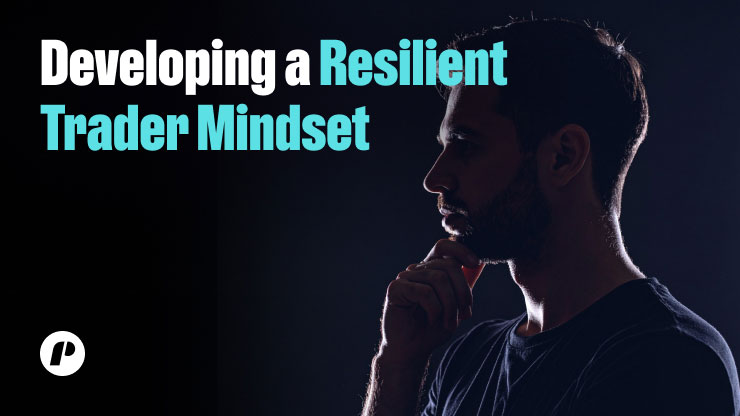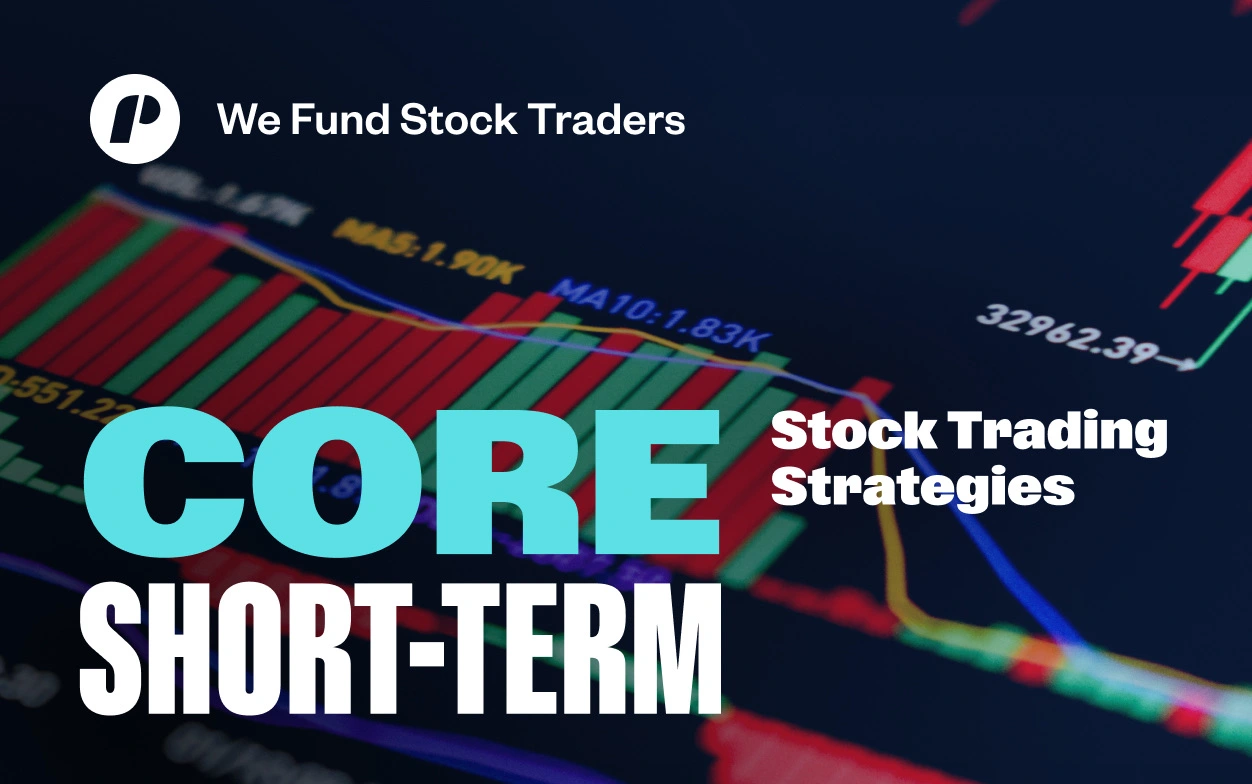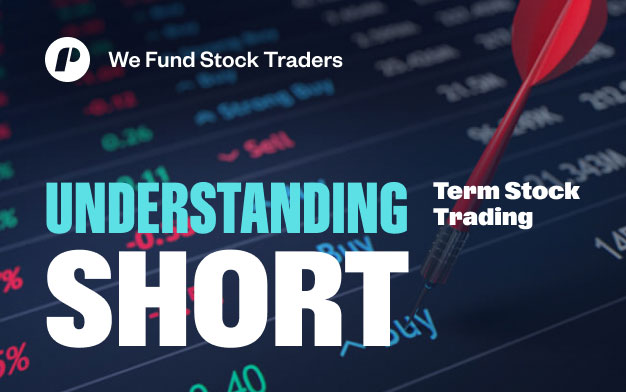
Ever wondered what truly sets successful traders apart? It turns out that it’s not just about having a brilliant strategy; your mindset and psyche play an equally significant role in how well you perform. For anyone trading stocks—whether you’re just starting out, you’ve got a decent strategy but are a bit stuck on how to make it really sing, or you’re a part-timer simply looking to boost your income—how well you handle your emotions and stick to your plan can honestly be the difference between making money and taking a loss. In the stock market, trading psychology isn’t optional—it’s a core pillar. You might wonder: What is Trading Psychology?— The answer to this question is simple: Trading Psychology is the mental and emotional discipline that traders need to stick to their strategy.
Key Notes
-
- Understanding Trading Psychology
- How Automation Helps Manage Mental Load
- Why Trading Psychology Matters
- Importance of Trading Psychology for Traders
- Managing Emotions, Fatigue & Stress
- Which tools help manage stress while trading?
- Common Mental Pitfalls
- Build Your Trading Psychological Edge
It involves managing fear, greed, stress, and impulsive behavior to make consistent, rational decisions under pressure. But what if there’s a way to minimize emotions from your decisions?
Is Trading Mentally Exhausting? Understanding the Impact on Trading Psychology
It’s a question that continues to spark debate among professionals and beginners: Is trading mentally exhausting?— And honestly, it certainly can be. The constant demand to react swiftly and with absolute certainty, to manage losses with composure, and to stay committed to a carefully laid plan—all while facing unpredictable markets and experiencing abrupt market changes in a fraction of a second—can wear down even the most experienced traders. It’s no surprise that many start to wonder: Is trading actually good for my mental health?— The truth is, it can be—but only if it’s approached with the right mindset and supported by strong systems and routines.
Trading is an emotional minefield because every decision involves real financial stakes. That pressure builds over time—particularly for part-time traders or beginners still trying to gain their footing. And it’s in those high-stress moments that cracks begin to show. Not because they lack ability but because the mounting emotional strain becomes too much to carry solo, leading to hesitation, missteps, or overreactions.
How Automation Helps Manage Mental Load
That’s precisely why you’ll see many savvy traders leaning heavily on powerful trading programs and tools. I’m referring to features such as trading bots, real-time alerts, intelligent signals, and insightful post-session analytics. They’re remarkably effective at lightening the emotional pressure and reinforcing discipline. When you merge a strong mindset with automation, the result is often steadier, more confident trading—with much less mental fatigue. Still, tools alone won’t carry you. Without a focused mindset, even advanced automation can ultimately do more harm than good. That’s where your trading psychology comes into play.
Why Trading Psychology Matters
If you are wondering why trading psychology is critical, you need to know that it all begins in the mind. Trading is just as much about what’s going on in your mind as what you have on your screen. The main idea here is clear: emotions can easily get the better of you, whether you’re a beginner or trading while doing something else. You might understand your strategy backward and forward, but if fear takes over, that won’t help you. The truth is that how you manage pressure in real-time shapes your results. That’s what separates those consistent, successful traders from everyone else.
Why is trading psychology so important for stock traders?
In a 2023 survey, over 68% of active stock traders admitted that emotional decision-making had negatively affected at least one major trade. So why is trading psychology so important? Because without emotional control—even with the best tools—it all falls apart. Stock traders face rapid decisions and significant consequences. Automation helps—but without the right mindset, it quickly turns into noise. Psychology is what keeps a trader steady when the numbers swing hard.
Contrary to what many believe, trading success doesn’t come from just reading the market—it comes from staying calm when things go sideways. That’s why experienced traders often say, “Trading is 80% psychology.” Some even push that number to 90%. It’s not a quote—it’s real. You could have the perfect setup, but if panic takes over, it all goes down the drain.
How Discipline Shapes Trading Outcomes
Success in trading doesn’t come from big wins—it comes from doing the right thing consistently, even when it’s tough. That’s the essence of mental discipline: holding steady when the market pushes you to react out of fear or ego. This is where innovative tools earn their place. Real-time alerts, bots, automation—all of that is great, but let’s be honest: they don’t trade for you. They just sit in the background, helping you hold it together when the heat turns up. They don’t stop the doubt or kill the noise—but they buy you a second to pause, breathe, and do what you know you should. That second? It might be the only thing standing between a wise decision and a costly mistake.

The Psychology of Top Traders: Who Truly Excels?
For traders seeking to stay sharp and perform under pressure, it begins with the right mindset. Not just reading charts or running a strategy—but managing yourself when things get tough. What separates top traders isn’t luck or technical skill alone—it’s patience, discipline, and the ability to stay clear-headed when it matters most. That focus stems from curiosity, discipline, and the ability to stay adaptable when the market shifts. To back that up, many use automation—bots, real-time alerts, and innovative tools built to reduce noise, lighten the mental load, and keep them locked into the plan. These tools don’t replace your decisions—they protect them. They cut the noise, ease decision fatigue, and help you stay sharp without burning out. Post-session analytics also play a role. They help spot patterns, reduce second-guessing, and bring clarity back into your routine.
Who’s Really Suited for Trading?
Some people are built for this game—they stay cool, stick to their rules, and don’t flinch when the market turns. It’s not about being a genius—it’s about self-control. But not everyone has that hardwired, and that’s where tools come in. Real-time alerts, bots, and automation won’t fix bad habits, but they can help traders follow their plans and sidestep emotional traps. Discipline still matters—but with the right tech, more traders can show up steady, clear-minded, and in control.
Managing Emotions, Fatigue & Stress in Trading Psychology
The big challenge in trading isn’t just about how to be more profitable or when to buy or sell; it’s more than that. At its core, trading is mentally challenging and emotionally demanding, especially for part-time traders, those juggling multiple responsibilities while trading to supplement their income, or beginners trading stocks with little money. However, a question remains about how stress affects trading and which tools help mitigate it.— Honestly, trading can be mentally exhausting and intense, and sometimes, we simply sink into the demands of it. The constant need to process data and make quick decisions without losing emotional balance often leads to burnout.
However, we need to find an answer to why trading is so emotionally charged.— Trading is so emotional because each trade represents potential reward, risk, and the fear of loss. Frankly, all of these aspects serve as triggers for deep psychological responses. Without a clear psychological framework to guide them, traders often become overly preoccupied with the markets and overtrade, likening their behavior to that of gamblers or bettors. In some cases, it can even become more addictive than these activities.
Trading Psychology & Mental Health: Is Trading Beneficial?
Before jumping into trading, we need to ask ourselves if we can handle the tough parts of market engagement. Many people seek reliable information on trading and mental health, and some even seriously wonder if this pursuit is beneficial for them. The answer boils down to your trading mindset, how you prepare, and the kind of support you have in place. For some, trading offers a deep sense of control and a mentally stimulating experience that feels incredibly rewarding. For others, especially if they don’t have emotional safeguards in place, it can easily lead to burnout, a lot of anxiety, or even compulsive habits, particularly when big money’s involved or they’re trading non-stop.
That said, trading also offers some surprising chances to sharpen your mental game. It genuinely helps build discipline, improves your analytical thinking, and can give you a true sense of managing your own money. To stay mentally balanced in such a high-pressure environment, you need clear rules, solid ways to manage risk, and regular breaks away from the screen. Just as crucial is learning not to tie your self-worth to every little market swing in trading. Simple things, such as mindfulness, sticking to healthy routines, and nurturing relationships outside of the markets, are vital tools for staying grounded and resilient.
How to mitigate trading fatigue using real-time alerts and trading signals
Traders don’t need to be glued to charts all day. Tools like TradingView, Trading Signals, Trade Ideas, and Bookmap offer real-time alerts and automated trading signals that notify users only when setups appear. This means part-time or mobile traders can stay informed without draining their focus. By responding to alerts—not chasing every tick—trading becomes more efficient and less mentally exhausting.
Which tools help manage stress while trading?
A smart trading setup includes tools such as automated bots, alerts, stop-losses, and post-session journals. Bots and risk tools execute or block trades based on logic—not emotion. Journals and analytics help traders review their decisions after the fact, turning mistakes into valuable insights. Together, these tools alleviate pressure, mitigate emotional triggers, and help traders cultivate a healthier and more sustainable mindset.

Developing a Resilient Trader Mindset
Becoming a consistent trader isn’t just about perfecting a strategy—it’s about mastering your mindset. Many stock traders struggle not because they lack knowledge but because they haven’t built the proper mental habits. So, how do you control your psychology while trading? It starts with preparation. Trading requires emotional discipline, self-awareness, and the ability to stick to a plan—especially during volatile moments. If you’re wondering how to prepare mentally for trading, the answer is routine, good habits, and reflection. These are the tools that train your brain for trading and help you build confidence over time.
How to build confidence and train your brain for trading
Confidence isn’t about being right every time. It’s about trusting your process, even when results vary. That trust is built by having a consistent workflow and using tools that reduce decision fatigue. You don’t need to be a naturally disciplined person to succeed. With the proper structure and support, mental toughness can be developed like any other skill. This is where trading technology plays a key role: it reinforces discipline, limits emotional interference, and allows traders to focus on improvement—not just results.
How to use trading bots to reduce emotional interference
Trading bots can help traders stay focused on their plans without getting sidetracked by the moment. The best part? You don’t need to be a programmer. Trading platforms now offer no-code bots and drag-and-drop automation templates designed for retail stock traders. These bots don’t make decisions for you—they execute the trades you’ve already planned. That separation helps reduce emotional interference, panic trades, or second-guessing setups.
How to create a balanced trading workflow using post-session analytics
Reflecting on what went right—or wrong—is essential. That’s where post-session tools like TraderSync, Tradervue, and Edgewonk come in. These analytics platforms enable traders to review their actions, identify emotional patterns, and refine their strategies. By logging trades and attaching notes, you begin to see not just your performance—but your psychology at work.
How to improve wellness by reducing decision fatigue
One of the most powerful ways to stay sharp is by reducing the number of decisions you make during the trading day. Pre-defined rules, trading checklists, and simple automation allow traders to focus on strategy execution—not overthinking. This helps maintain mental energy, reduces stress, and supports long-term trader wellness, especially for those balancing trading with a day job or other responsibilities.

Common Mental Pitfalls in Trading Psychology: What to Avoid
Even with the best strategy, the wrong mindset can quickly sabotage your trading. So, what are the don’ts of trading psychology? First, avoid emotional decision-making—especially during market volatility. Impulse trades and FOMO (fear of missing out) are two of the biggest traps. They push traders to enter setups they didn’t plan for or to chase after moves that have already played out. Overtrading often stems from the urge to recover losses or feel active in quiet markets—yet it usually causes more harm than good.
What mental traps should stock traders avoid?
Another major pitfall is revenge trading, where traders react to a loss by immediately jumping back in, hoping to recoup their losses. This often results in digging a deeper hole. Overconfidence after a win can be just as dangerous, leading to overly optimistic positions or careless risk-taking. The key is emotional regulation—and that’s where tools come in.
To minimize these behaviors, smart traders rely on automation. Trading bots enforce pre-set entry rules, removing the temptation to act on impulse. Real-time alerts notify traders only when specific conditions are met, helping them stay focused and informed. Risk-based stop tools cap exposure and help prevent overtrading. These systems create a distance between emotion and execution—turning trading into a structured, repeatable process.

Build Your Trading Psychological Edge With the Right Tools and Mindset
Successful trading requires more than just a strategy—it demands a strong mindset and psyche, and today, with intelligent automation. Controlling fear and stress helps maintain discipline. They reduce fatigue, sharpen focus, and help traders maintain mental clarity. This blend of mindset and technology gives modern traders a clear edge. Those who apply these principles often secure funding more quickly and trade with greater confidence. Trade The Pool supports this by providing freemium access to multiple platforms and tools designed to help you automate, analyze, and improve your trading. Build your psychological edge today and take control of your trading journey with Trade The Pool.
If you liked this post make sure to share it!






